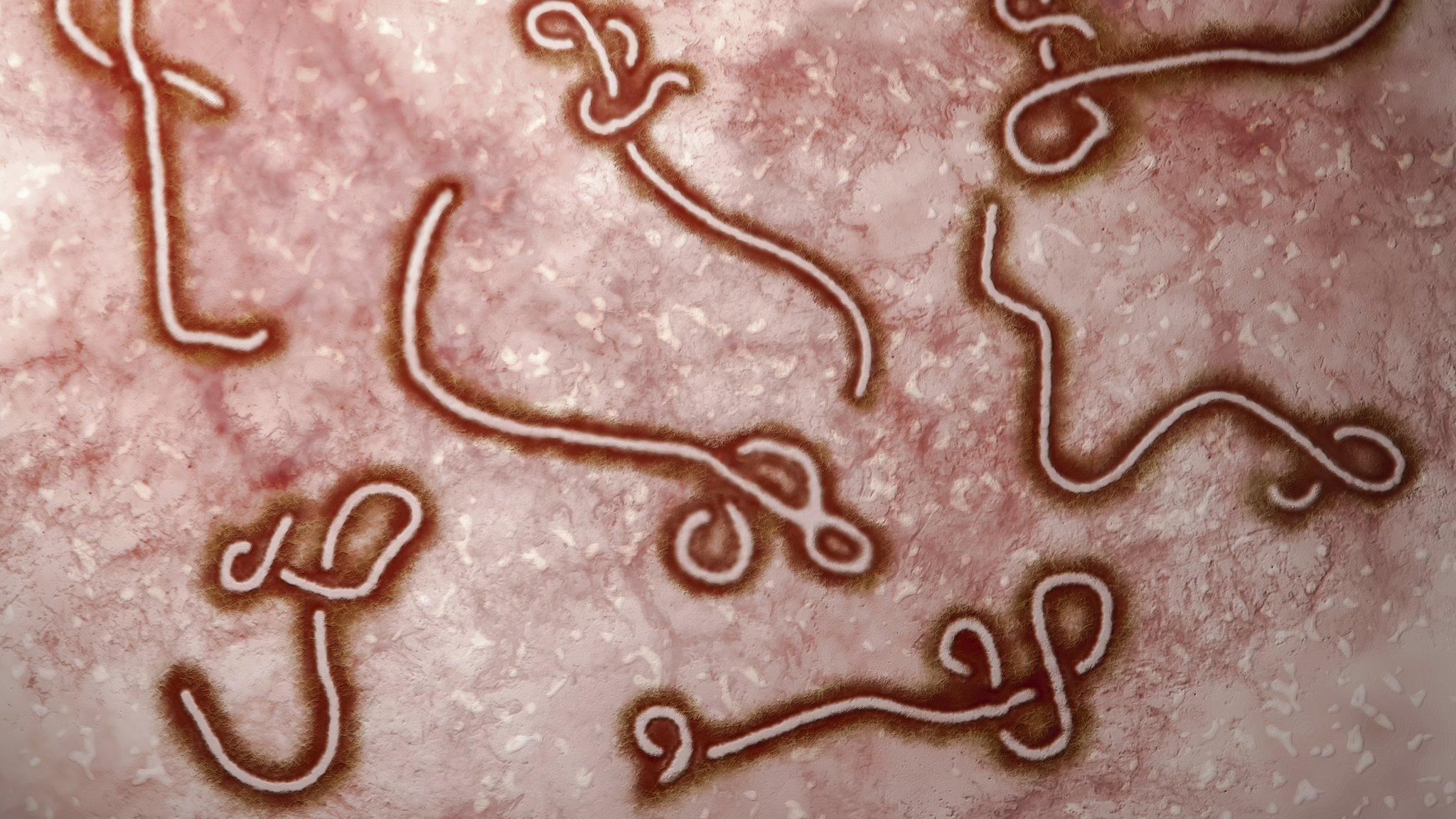Ebola nurse Pauline Cafferkey now 'critically ill'
- Published
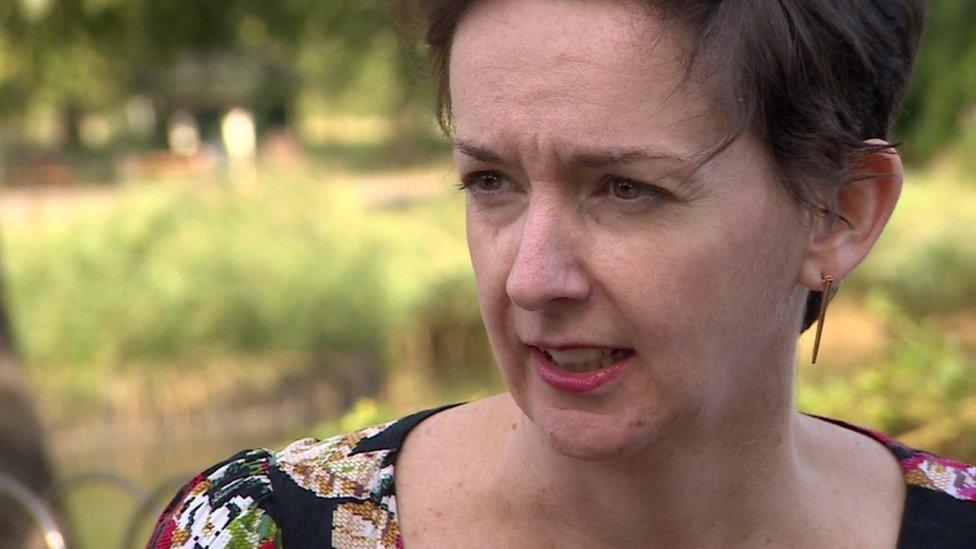
Ms Cafferkey was initially treated in a Glasgow hospital before being transferred to a specialist unit in London last week
A nurse who contracted Ebola while working in West Africa is now "critically ill" with complications arising from the infection.
Pauline Cafferkey was readmitted to a specialist isolation unit at the Royal Free Hospital in London last week.
The hospital said in a statement that her condition had deteriorated.
Ms Cafferkey, 39, from Cambuslang in South Lanarkshire, contracted Ebola while working at a treatment centre in Sierra Leone last year.
She spent almost a month in isolation at the Royal Free at the beginning of the year after the virus was detected when she arrived back in the UK.
She was later discharged after apparently making a full recovery, but it was discovered last week that Ebola was still present in her body.
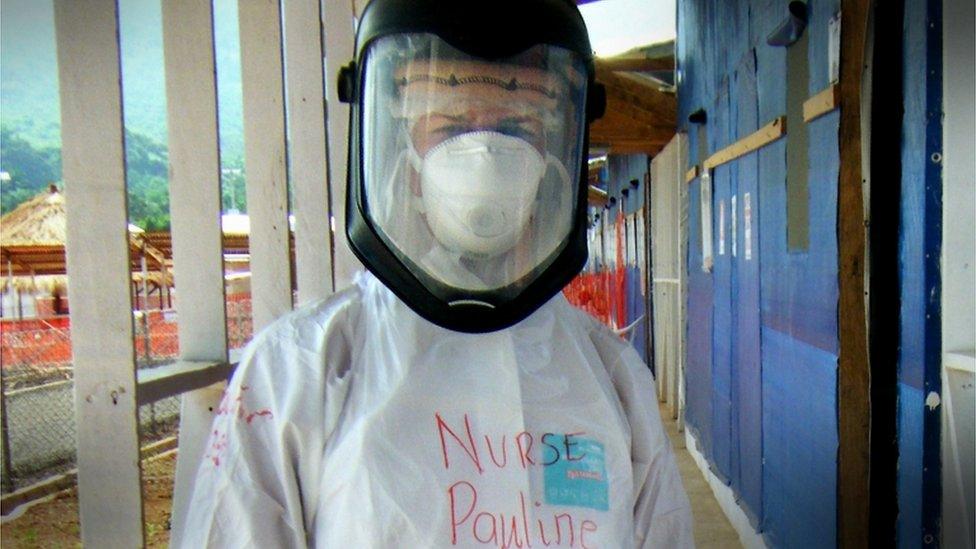
Ms Cafferkey worked as a nurse at an Ebola treatment facility in Sierra Leone at the height of the Ebola outbreak in west Africa
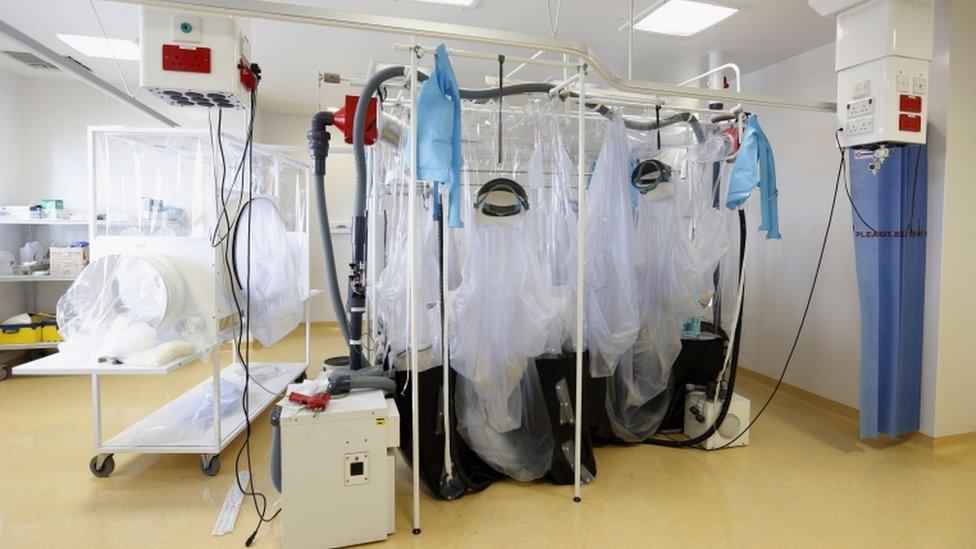
She is being treated at the specialist infectious diseases unit at the Royal Free Hospital
Bodily tissues can harbour the Ebola infection months after the person appears to have fully recovered.
A statement released by the hospital said: "We are sad to announce that Pauline Cafferkey's condition has deteriorated and she is now critically ill.
"She is being treated for Ebola in the high level isolation unit at the Royal Free Hospital."

The BBC's Tulip Mazumdar recalls a recent meeting with Pauline Cafferkey.
When the desperate call for health workers came at the height of the Ebola outbreak, Pauline Cafferkey stepped up to the very risky challenge. Whilst most were keen to be as far away as possible from the epidemic, Pauline ran right into the centre of it.
I met the nurse from Glasgow two weeks ago, just after she'd collected an award at the Pride of Britain Awards in London. She was in good spirits, but quite tired from a night of partying the evening before.
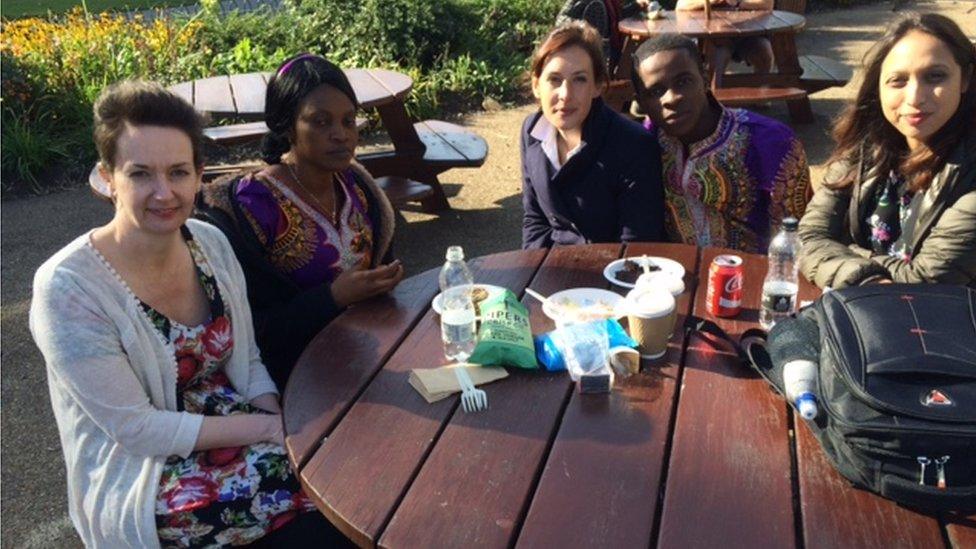
Pauline Cafferkey (L) met other Ebola survivors and reporter Tulip Mazumdar (R) in London two weeks ago
She'd half jokingly told me that some of the after effects she'd been experiencing - joint pains, thyroid problems - were down to being "a bit older" than the other two British Ebola survivors, who hadn't reported such significant problems.
She didn't seem particularly keen on being in the limelight for her heroic efforts, and was instead focusing on getting back into her normal life working as a nurse in Blantyre. But that wasn't to be.
Just days after our interview she was taken ill in Glasgow and flown down to the isolation unit in London.
She took the brave decision to travel to Sierra Leone to help save lives, despite being well aware of the risks, and she continues to pay a heavy price for it.

Ms Cafferkey had initially gone to an out-of-hours doctor in Glasgow on Monday of last week, but was sent home after being told she probably had a virus.
Her family has claimed doctors "missed a big opportunity" to spot she had fallen ill again.
She was admitted to the city's Queen Elizabeth University Hospital the following day after continuing to feel unwell, before being transferred to the Royal Free in a military aircraft on Friday morning.
The BBC's medical correspondent, Fergus Walsh, has suggested that Ms Cafferkey may have been suffering from meningitis.
He told BBC News: "She was admitted on Friday morning when her condition was serious and it is now critical. We have not been given any more details, but earlier this week her family had spoke about how unhappy they had been last week when she was sent home after going to an out-of-hours GP.
"She is a nurse, and described the symptoms of meningitis. That would fit with one of the possible scenarios.
"Although she fought off successfully being critically ill once before, somehow the virus stayed and lodged in parts of her body. It could well be the spinal cord, and if she does have meningitis that would be inflammation of the spinal cord."
Dr Ben Neuman, a virologist at the University of Reading, told the BBC that the medical team treating Ms Cafferkey was in "completely uncharted territory".
BBC News looks at why some Ebola survivors suffer a flare up of symptoms
He added: "It may be that the virus has gotten into a place where the immune system can't root it out, and that what we are seeing right now is essentially a frustrated immune system overreacting and basically hurting some of the other organs.
"We don't know what Ebola looks like the second time around or after a big relapse like this. Right now, she has had this virus about three times as long as the other previous record holder.
"It is bad news, but it is not hopeless news. As long as she is still there, and as long as she is still fighting, there is a chance.
"And there is a chance that some of the new medicines that we have got against Ebola may be able to help a little bit."
Ms Cafferkey had returned to work as a public health nurse at Blantyre Health Centre in South Lanarkshire.
She had been well enough last Monday to visit Mossneuk Primary School in East Kilbride to thank children for their fund-raising efforts.
And the previous week, she had received a Pride of Britain award in London, which also saw her meet the prime minister's wife, Samantha Cameron, at 10 Downing Street.
The Ebola outbreak in west Africa has killed 11,312 of the 28,457 people infected since December 2013, according to the latest WHO figures.
- Published18 August 2016
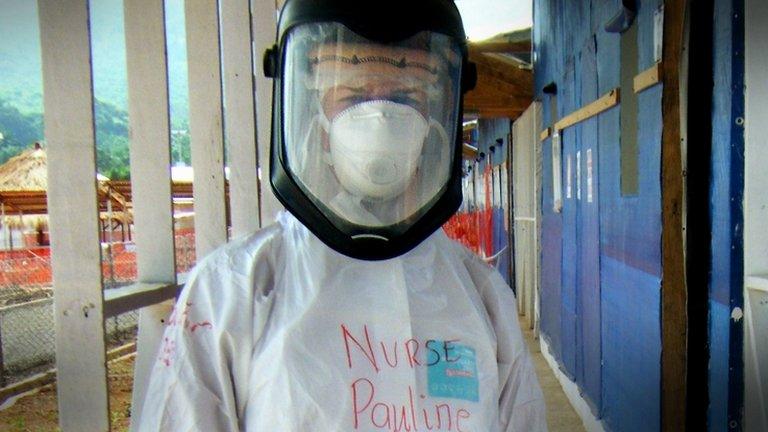
- Published12 October 2015
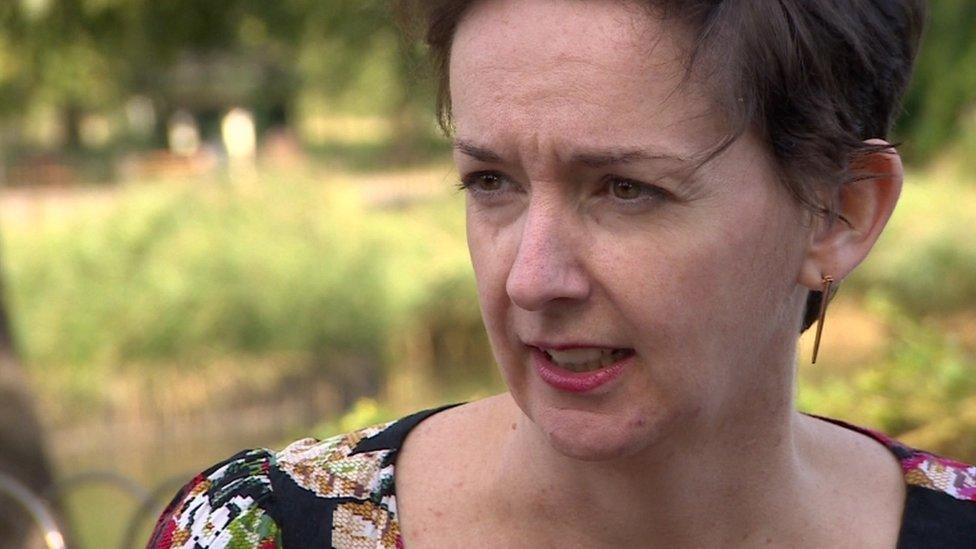
- Published11 October 2015

- Published14 October 2015
